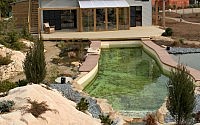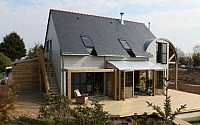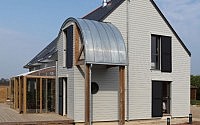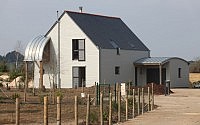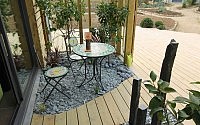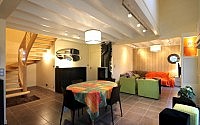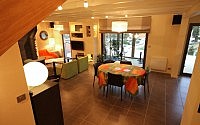An organic, bioclimatic house in Brittany
This house on the shores of the Golfe du Morbihan, not far from AURAY, was built using organic architectural principals with a concentration of green energy components for maximum efficiency without resorting to technical sophistication. Completed at the beginning of this year, the house is situated in a region benefitting from oceanic climate conditions.


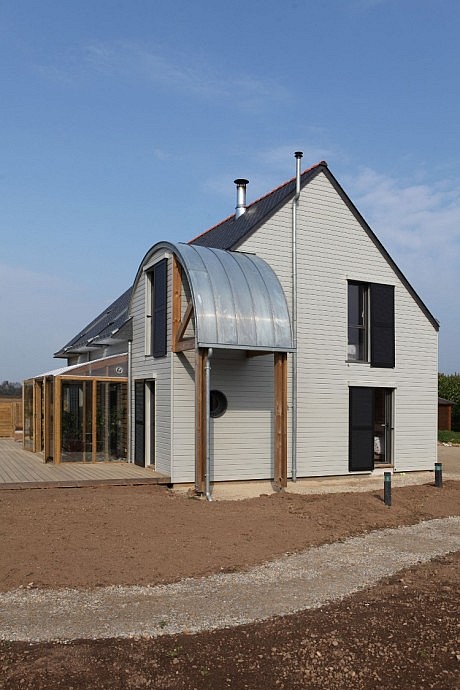

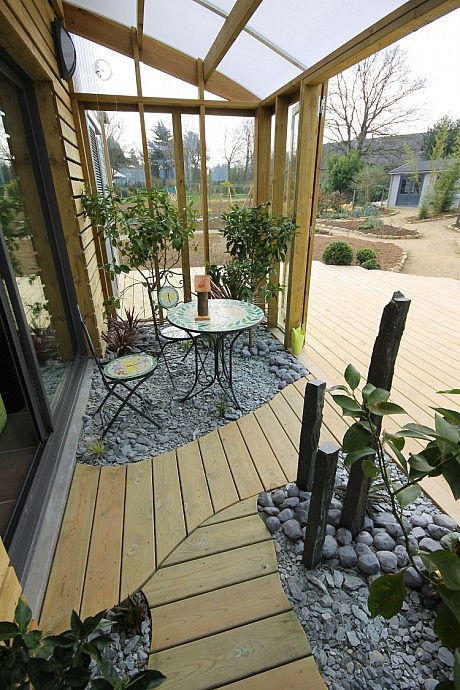
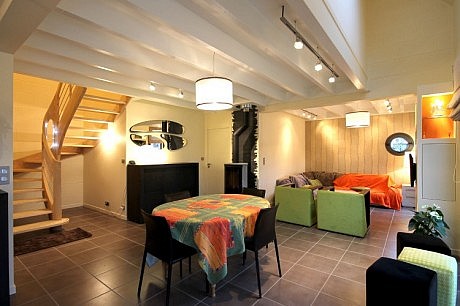
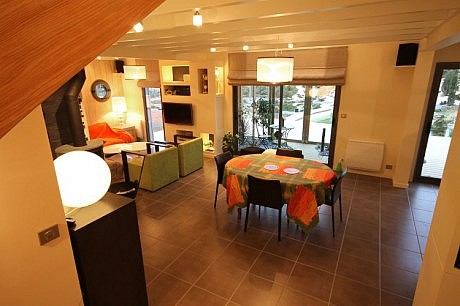
Description by Patrice BIDEAU
The project was born of the owners’ desire to build a new house on their property in BADEN, incorporating a landscaped garden and a natural, chemical free swimming pool. These were created before construction began on the house in collaboration with a designer and a landscape gardener. The garden was designed to provide protection from Westerly winds with a vegetable garden to the East. A distinctive ambiance emerged from this new, natural environment surrounding the construction site.
Initially, the plan was to build low-energy consumption house using a mixture of bioclimatic concepts, wood and concrete frame, thermodynamic heating and a 5.8 kW hot water tank. The house was designed for an energy consumption of 31 kWhpe/m² per year for the heating and hot water with a hygro B (humidity regulated) ventilation system. As work progressed, plans evolved!
The house was sited in the North-West section of the property in order to provide maximum space for the garden and terrace. The wood frame garage with cladding and arched zinc roof serves as a protective buffer, the canopy overhang also provides shelter for the main entrance.
There are few openings in the North facing wall. Built with concrete breeze-blocks left unclad in the interior and insulated with a wood frame add-on, a 120mm layer of Rockwool and cladding on the outside, this wall and the adjoining partitions support the wood floor while its intense thermal inertia controls temperatures, contributing to the inhabitants’ comfort in both winter and summer.
The walls of the house are 145/45 wood frame with 145mm Rockwool insulation standing on a concrete floor which covers crawlspace foundations composed of 200mm polystyrene slabs and a 50mm layer of extra insulation designed to limit linear thermal transfer.
The 45° pitched roof is covered in natural schistose slates and has a zinc-clad, arched dormer window used for storing wood. The roof is insulated with 300mm Rockwool. The vertical framework and pitch have a steam brake, twice tested for efficiency, to insure air-tightness.
Opposite the swimming pool, a pergola for wisteria forms a link between the kitchen, the terrace and a wood frame conservatory with a polycarbonate roof, double glazed panels and wooden sub-frame, housing a winter garden. The conservatory with its slatted, sliding shutters made of wood and winter garden composed of stones, broken slates and shrubs is designed to procure extra heat in winter and to remain open in summer, thus ensuring natural ventilation for the house.
The combination of all these ecological elements have contributed to the elimination of the thermodynamic heating system and its replacement with back-up heating in the form of a 6 kW wood burning stove plus high performance fluid-filled radiators for an efficiency rating of between 80 and 90 kWhpe/m² per year, which conforms to the French THPE (very high energy performance) label.
This house has benefitted from the active involvement of the owners in the radical transformation of their living space. They have brought innovative use of colour interaction and perception to the quest for a harmonious atmosphere in which to embark on a new life.
It is also the work of an architect inspired by both David Pearson’s “GAIA Charter” and the opportunity to create an eco-friendly habitat.
Crédit photos : Armel ISTIN
a.typique Patrice BIDEAU architecte
- by Matt Watts